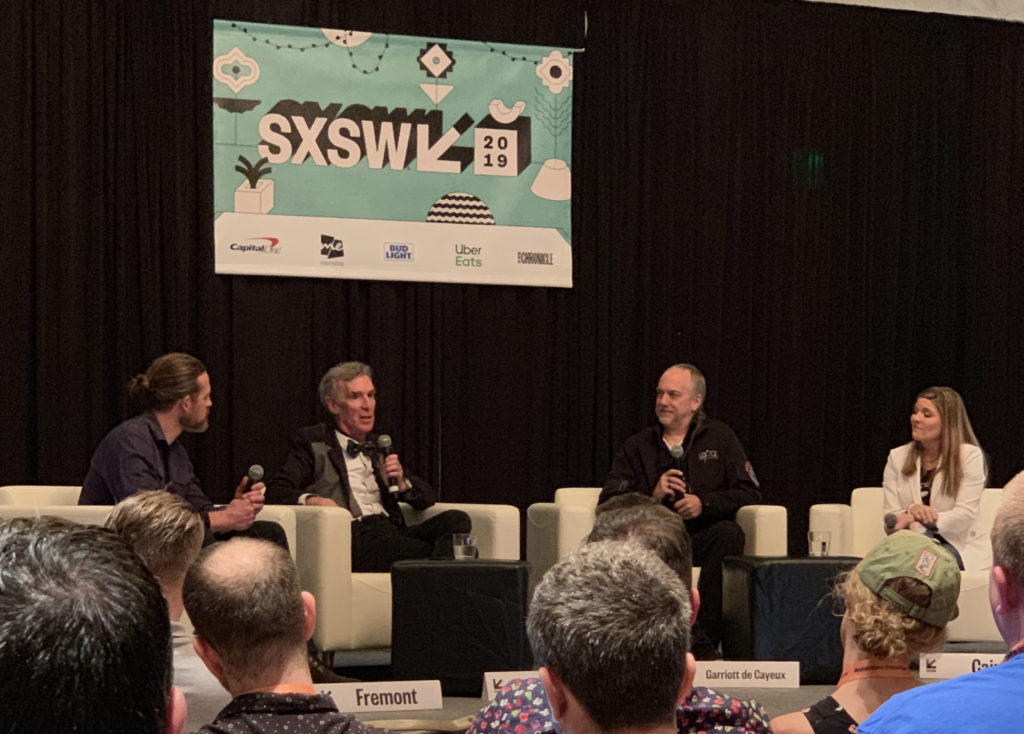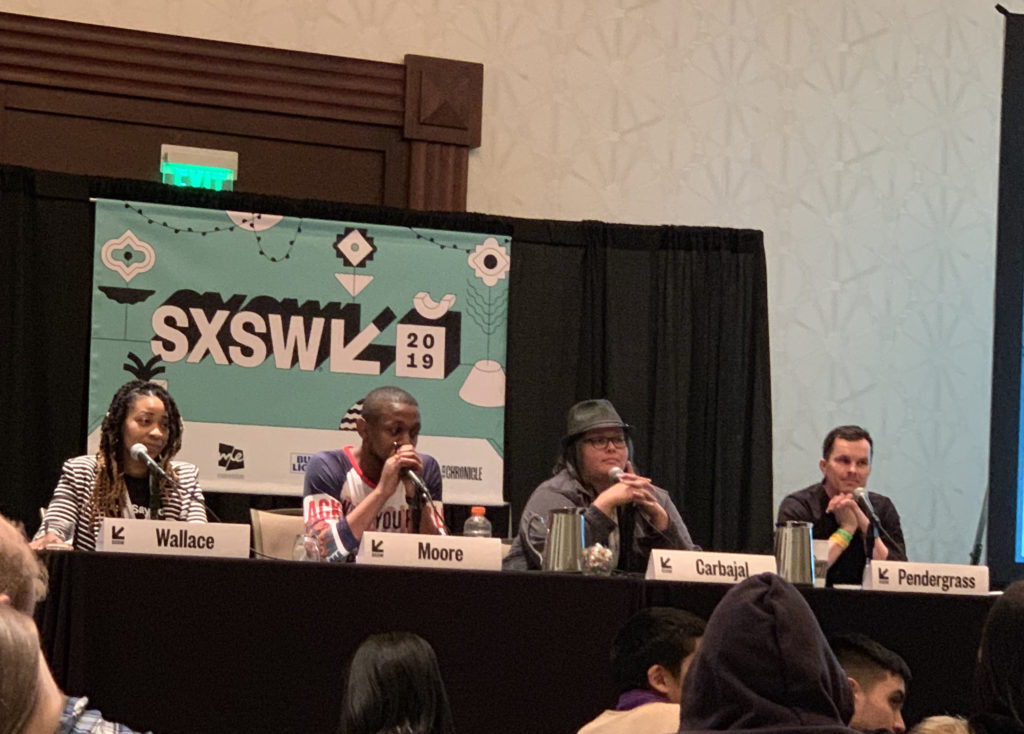
Leading up to March I’d heard things from classmates/professors from, “it’s going to be insane!” to “it will change your life”—they were talking about South by Southwest of course.
For me, I can confirm that it was quite a bit of both.
With my phone in hand and the “favorites” tab open on the SXSW GO app, I made my way through the streets of downtown from the Austin Convention center up to The Omni and then back down to the JW Marriott…and everywhere in between.
With the interactive potpourri of panels I attended, I didn’t expect for one common theme to translate between the various tracks.
That takeaway was reform.
Political reform, social reform, criminal justice reform and the desperate need for all three of them was the most common theme I took away from all of the panels I attended at SXSW.
You’re probably wondering how I took this away at a conference such as the SXSWi, but with all the innovation, tech, media and creation it seems only natural that most aspects of our society wouldn’t quite know how to navigate all of this unfamiliarity.
Political Reform
The first time I noticed this was in a live recording of the Austinpreneur: Space Exploration for All podcast. In this recording scientist Bill Nye stressed the importance of government work and funding through NASA, which has seen a drastic cut from 4.4% of the national budget at its height in 1966 to an ever decreasing 0.47% as of 2017. This decrease in budget has allowed other companies like SpaceX to surpass, if you will, NASA when it comes to innovation and efficiency of resources.

Social Reform
Next, I went into a panel called Code is not Neutral: Ethics of Creating Software, which illustrated at best the naivety of coding; to at worst the intentional marginalization of certain groups through simple algorithms. An example UX designer Clarissa Peterson gave in her solo session was an error in Google Photos’ automatic categorization algorithm. As you will see in the image below Google Photos incorrectly categorized a group of black individuals as gorillas.

Criminal Justice Reform
The third example was the last panel I attended at SXSW this year. It was titled Can We Heal Ourselves from the War on Drugs? I attended this panel directly after the convergence keynote with John Boehner about marijuana enterprise, which I did intentionally to see the contrast between the large and small panels and the direction they were going.
I’m so glad I did.
The panelists were passionate, especially LaTorie Wallace of We Bring Awareness & Knowledge Educating Demographics or WeBAKED, a non-profit geared towards the education of Cannabis and it’s healing properties. Wallace stressed the importance and desperate need of reform to accompany legalization. This is because we have so many citizens, in states who have now legalized marijuana, sitting in jail for marijuana related charges. Further, those who have gotten out or have any kind marijuana charge on their record have an extremely difficult time finding a job—especially in the cannabusiness industry itself.
Another panelist Chas Moore, from the Austin Justice Coalition, brought up the fact that when he went to California recently and ordered a cannabis delivery service the person who came to deliver was an older white woman. Panelists used Moore’s example and pretty much the entire convergence keynote to illustrate the fact that even in this newly formed business minorities and people of color are already being heavily marginalized when it comes to cannabusiness, an industry that those like Wallace have been advocating and fighting for their entire lives.

It’s hard to translate the passion of these panelists in text, but I will say that I teared up on multiple occasions within the hour period I was in that room. I left feeling inspired, moved, privileged and motivated.
SXSW was an amazing experience, but more so it was an enlightening one. Aside from the three aforementioned panels: I sat in on one about responsive fashion design and its lack of availability simply because those with disabilities aren’t a part of the thought process, and there are no guidelines in place which require that they are. Same when it comes to the web and designing for accessibility. The need for reform even presented itself in in a panel discussing a lack of regulation in the vibrator market and the fact that most companies don’t use medical grade silicon in their products, you guessed it—simply because they don’t have to and it’s far cheaper to use silicon of lesser quality.
Moving Forward
The point I’m trying to get across isn’t that our government needs to constantly regulate all aspects of our lives, it’s that the places that are getting regulated versus the ones that aren’t, need to be adjusted. We as a society need to readjust our entire perceptions on some of these issues, and that can’t happen if the status quo remains.
Imagine the innovation we can and will see if we allow everyone at the table. Imagine someone who did something stupid when they were a teenager, has a record and now cannot find work or even vote. Now imagine tens of thousands of them and all the ideas, solutions, cures that they could have but simply aren’t being allowed to say.
Like I said in the beginning, a lot of this is new to us. Cannabusiness, technology, space travel. Now, we must learn.
We must move forward with an understanding that we can’t treat everything new just as we did things in the past. SXSW is such a unique experience in the fact that it provides this platform for people across the entire spectrum to participate and speak on the widest range of topics you can ever imagine. Because of this platform I was able to realize the need for reform.
I hope I have convinced you the same—that moving forward it is important to be mindful of people with disabilities, people of color, people with criminal histories and any other group you can think of…simply be mindful of people.
The views and opinions expressed in this article do not reflect those of the South by Texas State project or Texas State University.

Comments are closed, but trackbacks and pingbacks are open.